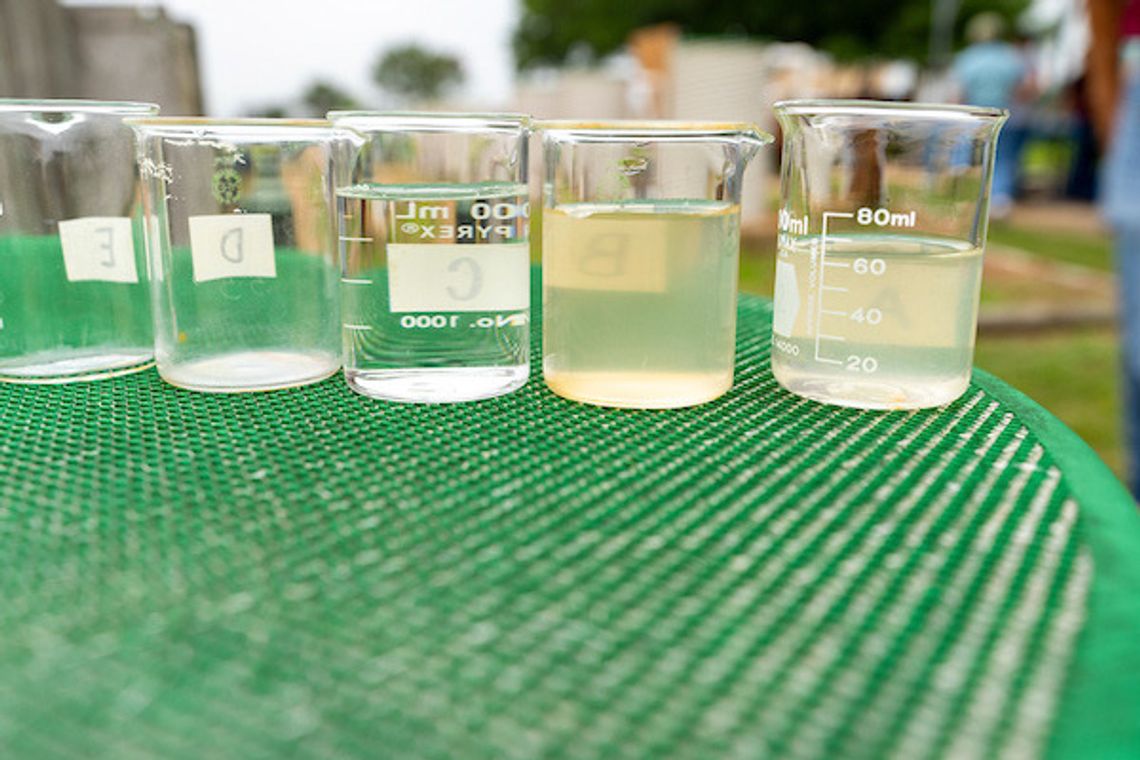The Texas Well Owner Network (TWON) will host a private well water screening for Blanco County residents on Oct. 6-7 in Johnson City.
Joel Pigg, Texas A&M AgriLife Extension Service program specialist and TWON coordinator, Department of Soil and Crop Sciences, Bryan-College Station, said the Texas Well Owner Network program is for Texas residents who depend on household wells for their water needs.
“The TWON program was established to help well owners become familiar with Texas groundwater resources, septic system maintenance, well maintenance and construction, and water quality and treatment,” Pigg said. “It allows them to learn more about how to improve and protect their community water resources.”
There is a $15 charge per sample. Water samples will be screened for contaminants, including total coliform bacteria, E. coli, nitrate-nitrogen and salinity.
Water samples can be dropped off on Oct. 6 from 8:30-11 a.m. at the AgriLife Extension office, 200 N. Ave. G, Suite 7, or at the Blanco Pedernales Groundwater Conservation District, 601 W. Main St.
A follow-up “Well Informed” meeting to explain water sample results will be held on Oct. 7 at 9 a.m. at the Community Resource Center, 206 S. U.S. Highway 281 in Johnson City.
A water sample form must be completed for each sample submitted. Collection instructions and a sample information sheet are available at https://twon.tamu.ed u/.
“We encourage you to bring samples from all wells on your property,” Pigg said. “Also, many participants who have water treatment equipment take samples before and after the treatment to make sure the equipment is functioning properly.”
Each sample should be labeled with both its name and the well from which it came.
Pigg said it is essential for those submitting samples to attend the appropriate follow- up meeting to receive results, learn corrective measures for identified problems, and improve their understanding of private well management.
The presence of E. coli bacteria in water indicates that waste from humans or warm-blooded animals may have contaminated the water, Pigg said. Water contaminated with E. coli is more likely to also have pathogens that can cause diarrhea, cramps, nausea or other symptoms.
The presence of nitrate- nitrogen in well water is also a concern. Nitrate-nitrogen at levels of 10 parts per million is considered unsafe for human consumption, he said.
“These nitrate levels above 10 parts per million can disrupt the ability of blood to carry oxygen throughout the body, resulting in a condition called methemoglobinemia,” Pigg said. “Infants less than 6 months of age are most susceptible to this.”
Salinity, as measured by total dissolved solids, will also be determined for each sample, he said. Water with high levels may leave deposits and have a salty taste. Using water with high levels for irrigation may damage soil or plants.
For more information on the water screening, contact Pigg at 830-275-3866 or [email protected].
The screenings are presented by AgriLife Extension and Texas Water Resources Institute, TWRI, in partnership with the AgriLife Extension office in Blanco County.
.png)










